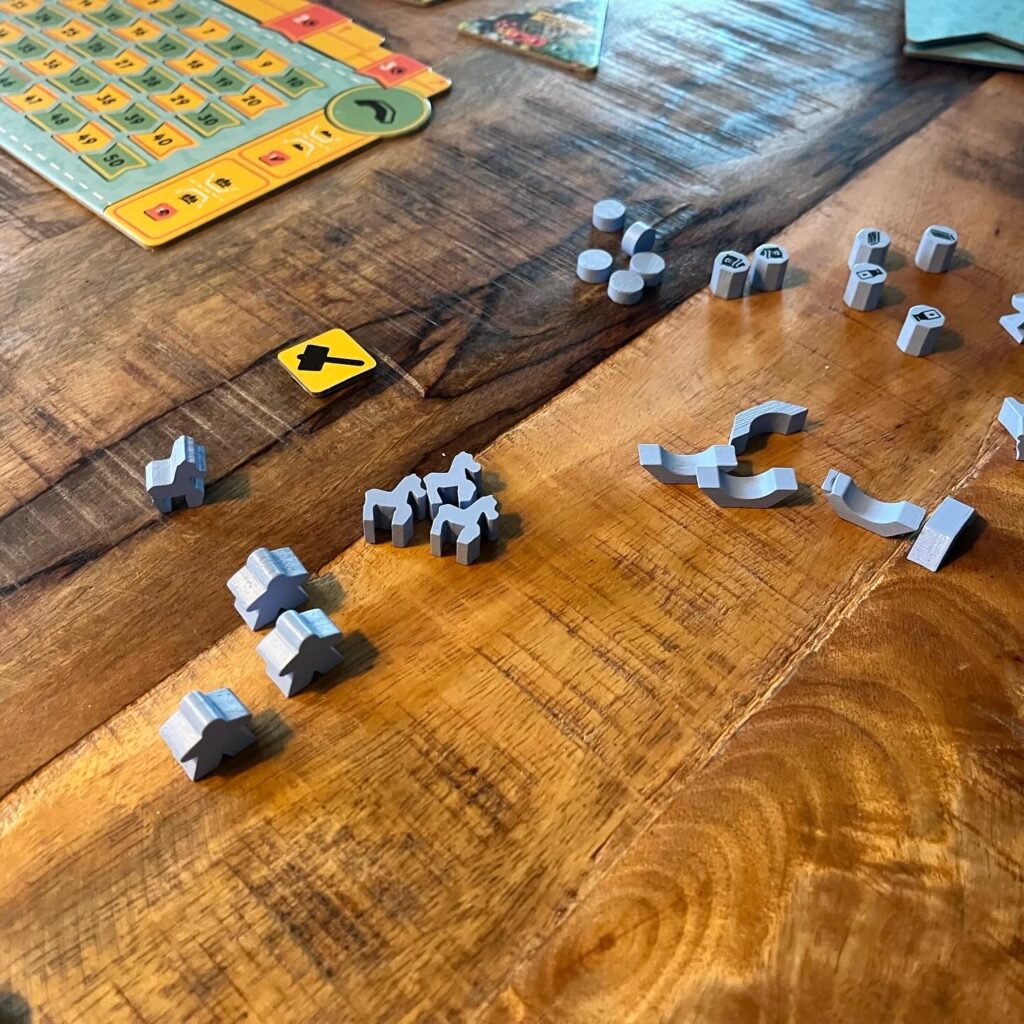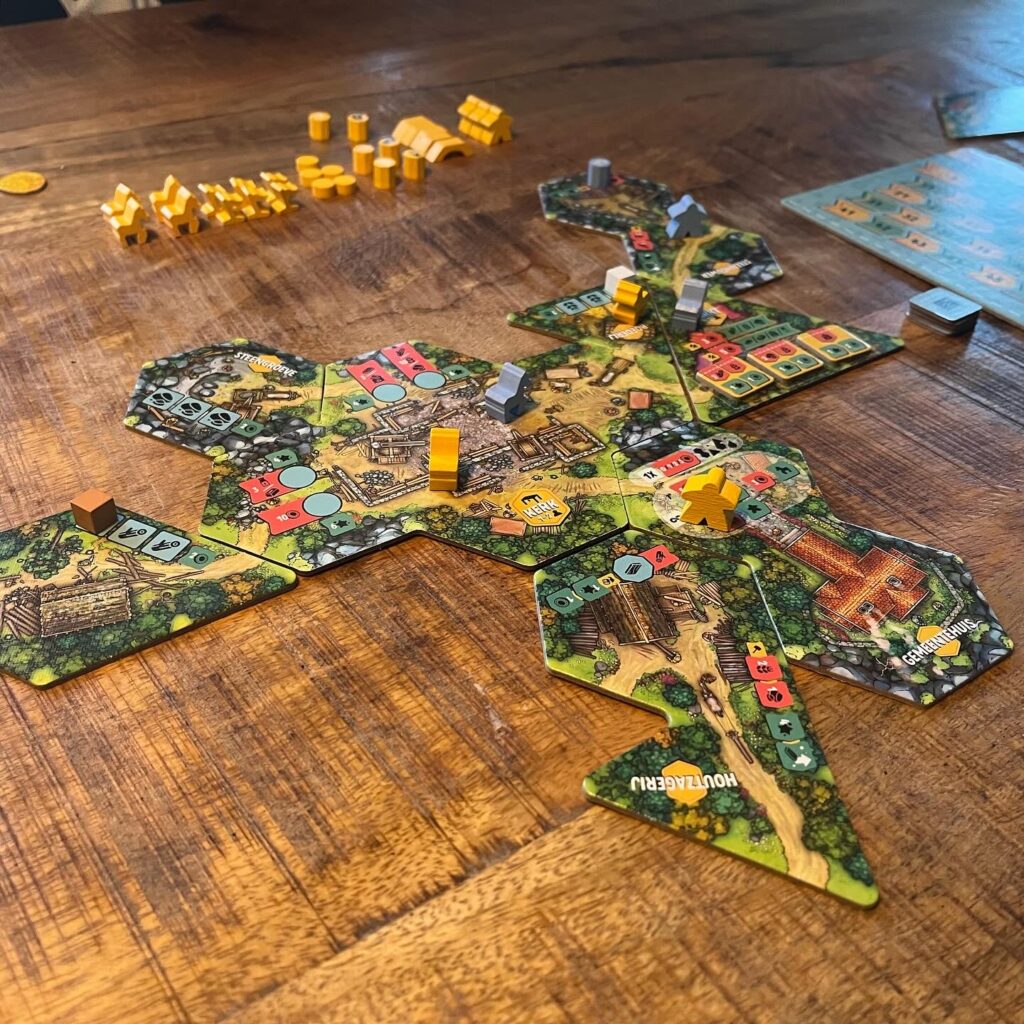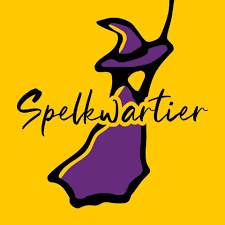When you see the title, the first thing that comes to mind is Shakespeare’s famous play – a revenge tragedy about Hamlet, the prince of Denmark. However, this game is not about that Hamlet, but about a hamlet. This hamlet has the biggest of plans, which is to build a church in the hope of becoming a village. Will you help evolve this hamlet?
Background and goal
A hamlet is the English term for a small settlement (or place) that is smaller than a village or town. The main characteristic is that there is no full-fledged church present in this place. With a simple little chapel a hamlet cannot yet call itself a village, but with an imposing church building it may become a full-fledged village.
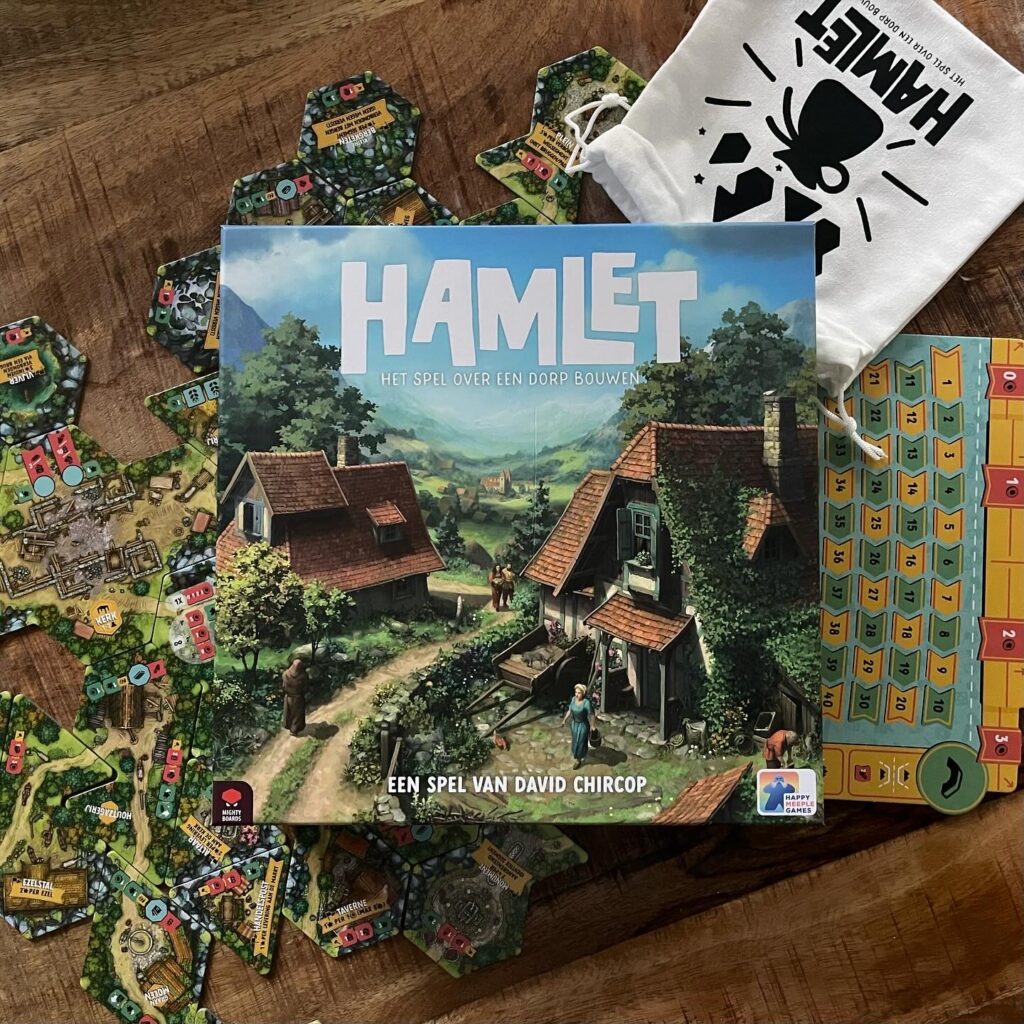
In Hamlet, players engage their villagers and donkeys to produce and transport goods, construct new buildings, build roads and, of course, make their contribution to the construction of a church. For all their contributions to the development of the village, players receive victory points and the player with the most points wins.
Setup
At the beginning of the game, the starting tiles are placed on the table to build the start of the hamlet. The foundation of the church is already present and some spots in the hamlet already have some production possibilities in the form of some buildings, a village hall (a hamlet of grandeur) and a market. The remaining tiles are sorted and all tiles with the symbol of a bag are placed in the draw bag.
Players receive a set of parts in the chosen color and each player receives some coins and places a donkey and a villager on the tile where the church will be built. Next to the board where players will keep score, some building tiles are placed from the bag. Players place the awards and resources in reach and they are ready to play.
Gameplay
During their turn, players can move their donkeys and perform actions with their villagers by moving them to buildings. Donkeys and villagers must move to other tiles via roads, but sometimes there is no road (yet). There are roads depicted on the tiles, but players can also build roads.
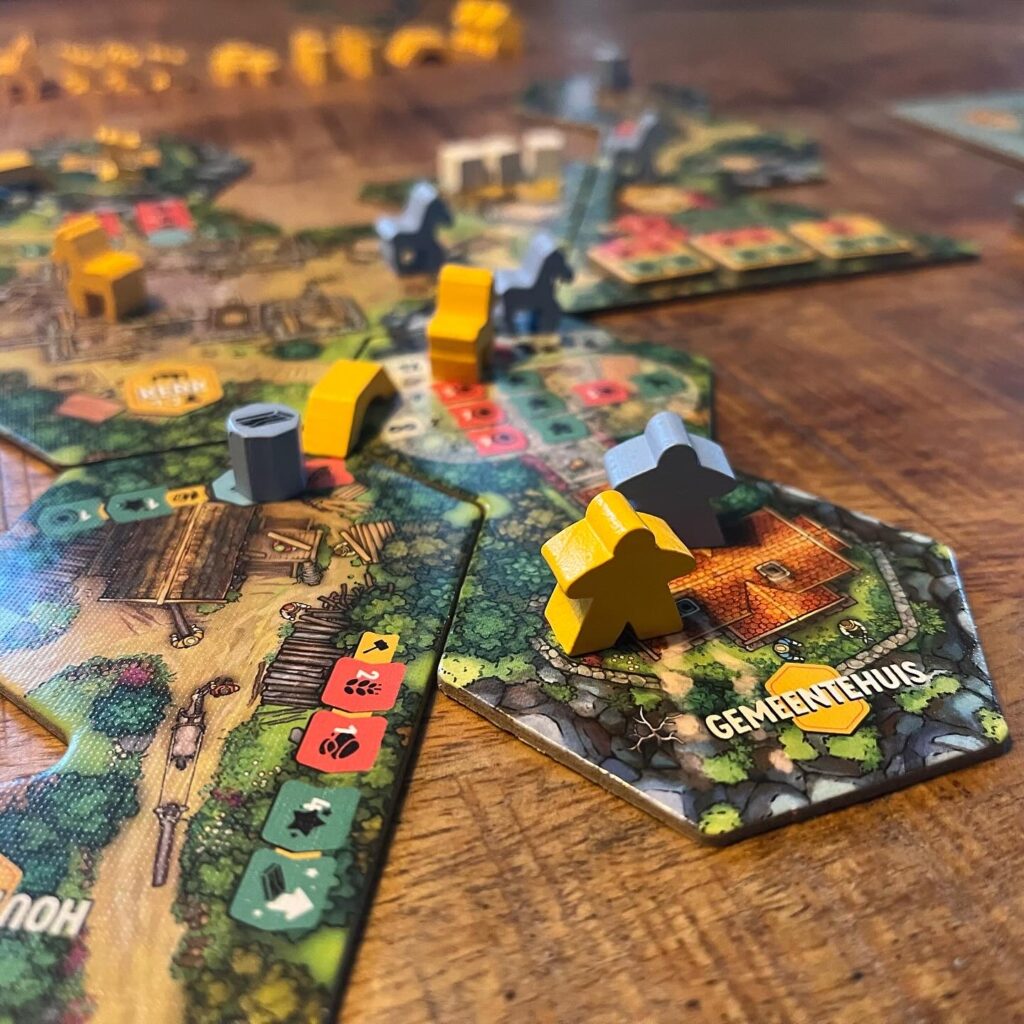
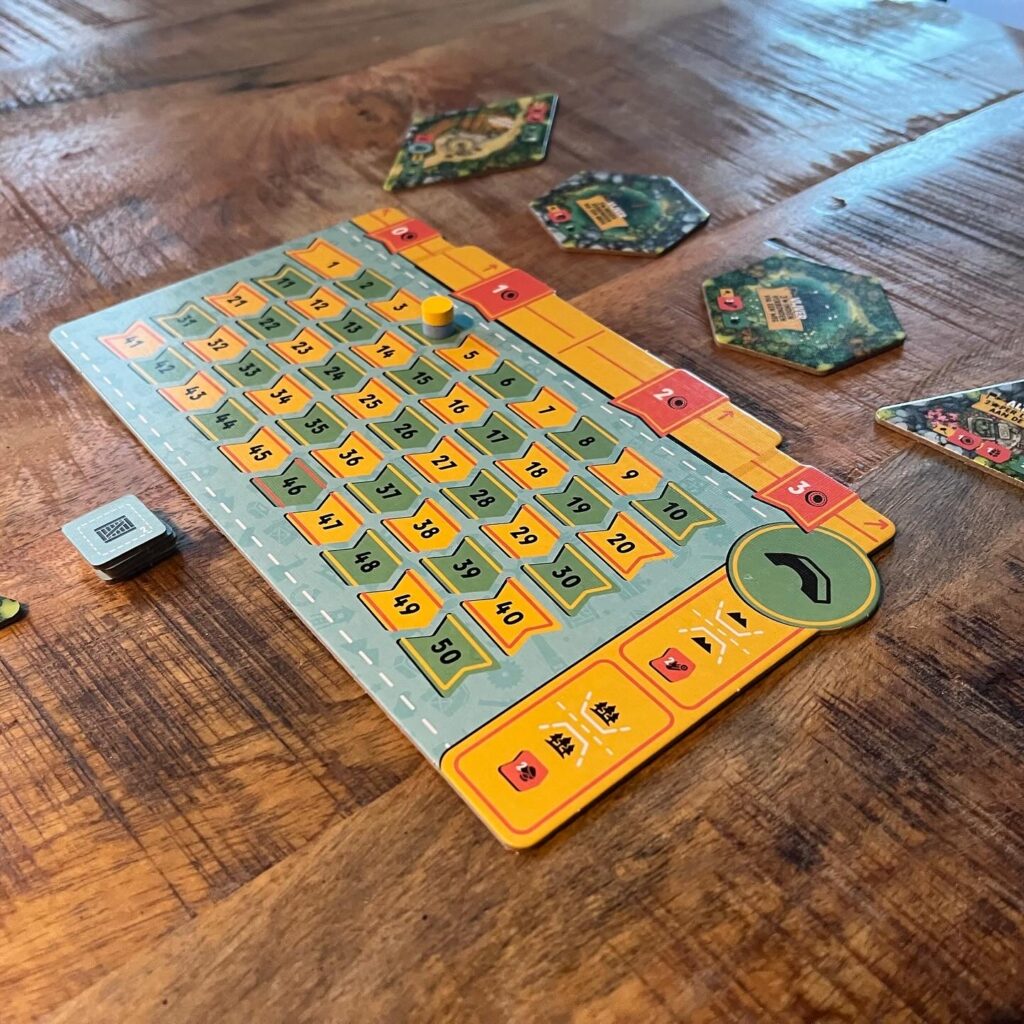
With villagers, players can activate buildings for special actions (for example, resource production, buying donkeys or new villagers, trading, and more), build a new building tile adjacent to their current tile, or build a road. All of these actions require goods, and those goods are located throughout the village. When resources or materials are produced they remain on the corresponding building. All players can use the goods and materials, but must be able to transport them to their location. Donkeys are needed for transportation. In addition to normal commodities, players can also produce high-value and refined materials. Each time a player uses them, the player who originally manufactured them receives a bonus.
By taking actions, players earn points and coins and manufacture. New buildings with new possibilities appear and this creates new resources and materials, and after a while players can also build on the church and earn points. Once the church is completed, the game comes to an end. The hamlet has become a village.
Verdict
Hamlet contains some elements that I can really appreciate such as the collective production of goods. This slightly communist aspect of the game ensures that you consciously and unconsciously help other players perform their actions, but producing also earns you plenty. In addition, of course, it also works the other way around and your opponents also help you. This makes for a highly interactive and sometimes slightly frustrating layer. Further gameplay is sometimes a tad repetitive as players are mainly busy moving their villagers back and forth to bet on the actions for which resources are available and what resources they can transport.
Hamlet is nicely designed and has a nice table presence. Despite the space you need on the table, the tiles are a tad on the small side and when there are a lot of resources, donkeys, roads and villagers, the tiles are sometimes more difficult to read. Placing tiles, by the way, is an interesting puzzle due to the many different shapes of the buildings. You want to place the tiles in such a way that you can easily transport bonuses such as resources again. If you are looking for a euro game with an interesting twist and reasonably clear gameplay and not averse to some fiddling with smaller parts, then this hamlet probably still has a place.
